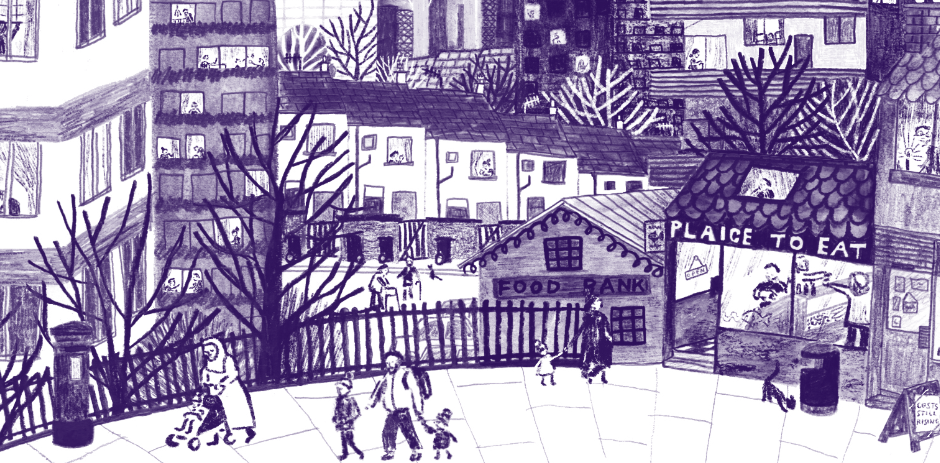By Ella Michalski, Changing Realities participant
Changing Realities is a participatory online project led by academics at the University of York and Child Poverty Action Group (CPAG), working with over 100 parents and carers living on a low income across the UK. We work together to document life on a low income and push for change.
Parents, such as myself, spoke out about what needs to change, and along with a team of facilitators created our most recent briefing: Terrified for this Winter. As the mist of the Covid pandemic slowly lifted away at the end of 2021, rather than recovering from the trauma, society was presented with yet another crisis – how to survive against rising prices in our daily lives.
As this well-documented crisis hit headlines across the country, politicians were forced to act and address with urgency how they would help families who had already been through so much. The crisis was discriminatory in nature, as those on the lowest incomes found themselves in deeper financial hardship than middle or high income families. Measures such as periodic cost-of-living payments arguably didn’t suffice to provide long-standing support to those who needed it.
Our key findings
In this briefing we outline how soaring prices and inadequate social security support are leading to a bleak economic reality for families living on a low-income. The participatory and quantitative evidence gathered clearly indicate one thing: this crisis is far from over. With the Government’s Cost of Living Payments due to end in 2024, the demand for longer-term, adequate solutions for those suffering has never been so important. Evidence has shown emergency payments do not serve to make a real difference to households, as their flat rate means a single person or family of five would receive the same level of support.
Research has also shown that low-income households spend more of their overall income on basic essentials, such as food and energy – which cannot be cut back on without severe consequences. Many Changing Realities parents documented their truth via diaries and workshops, and all of the responses and testimonies echo the same sentiment: we need more support, less judgement and a commitment to tackle the problem – for those in a position of power to invest in social security. We also know through the work we do that parents are struggling to support their children in school, and so we ask that universal free school meals are introduced, because the current criteria excludes many low income families.
Our co-produced recommendations
We feel that it is only right for the Government to commit to always increasing benefits in line with inflation without question: and to consider how long-term support is more valuable than short-term/emergency payments. The issues we face are systemic and deep-rooted, but can be fixed with reform by listening to those who are facing daily hardships. We ask that political leaders take heed from those who are directly affected by poverty – so they can consider real-time solutions for real-time problems. Too often, it is easy to neglect people’s needs, particularly where there is an uncomfortable truth.
Children and families such as those of Changing Realities participants deserve dignity and accessibility to living adequately without needing to fight at every corner. Preventative measures are therefore preferable to help those in need – we do not need to reach a crisis point before intervention occurs.
This article is featured in our 13 December newsletter. To get more articles like this delivered straight to your inbox, sign up to our mailing list.






